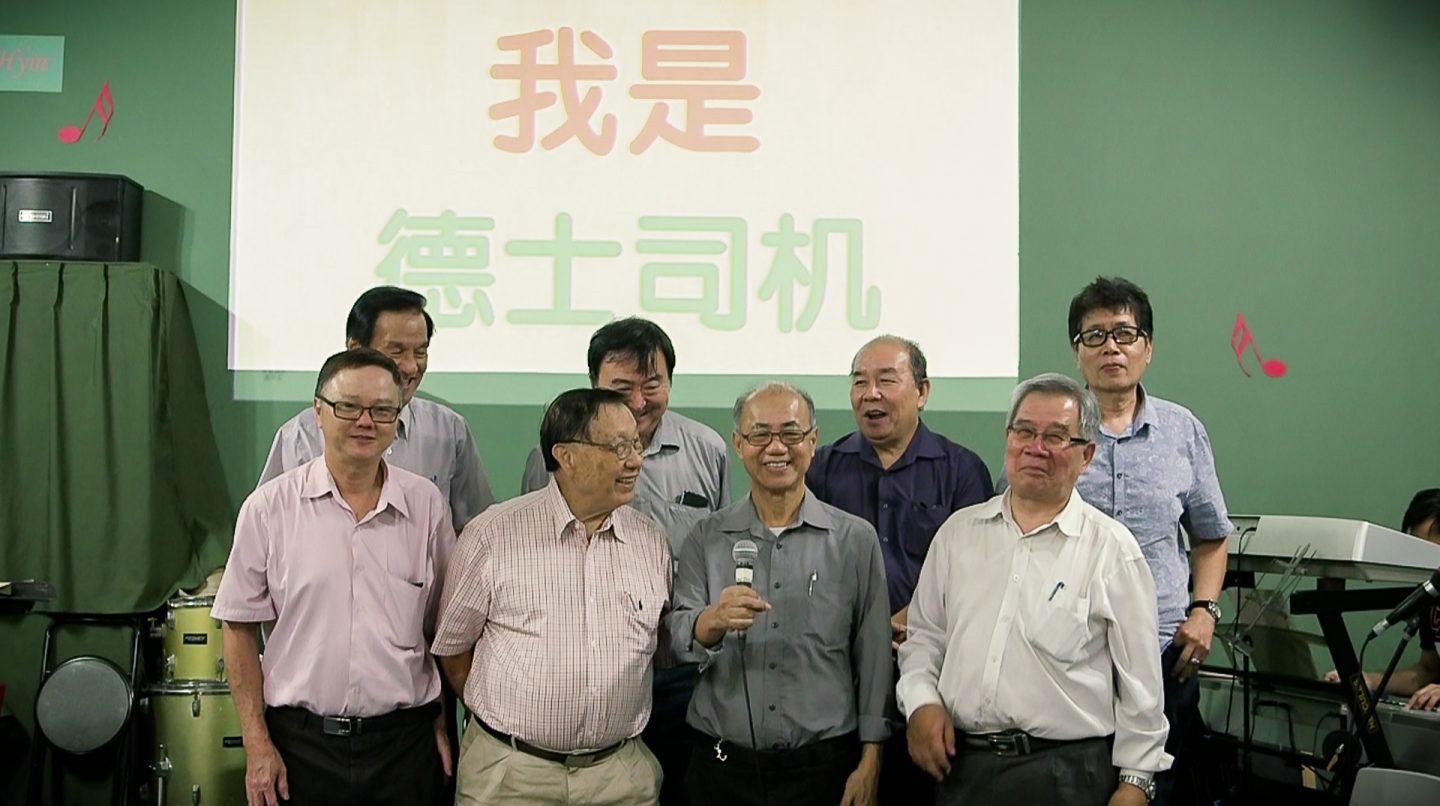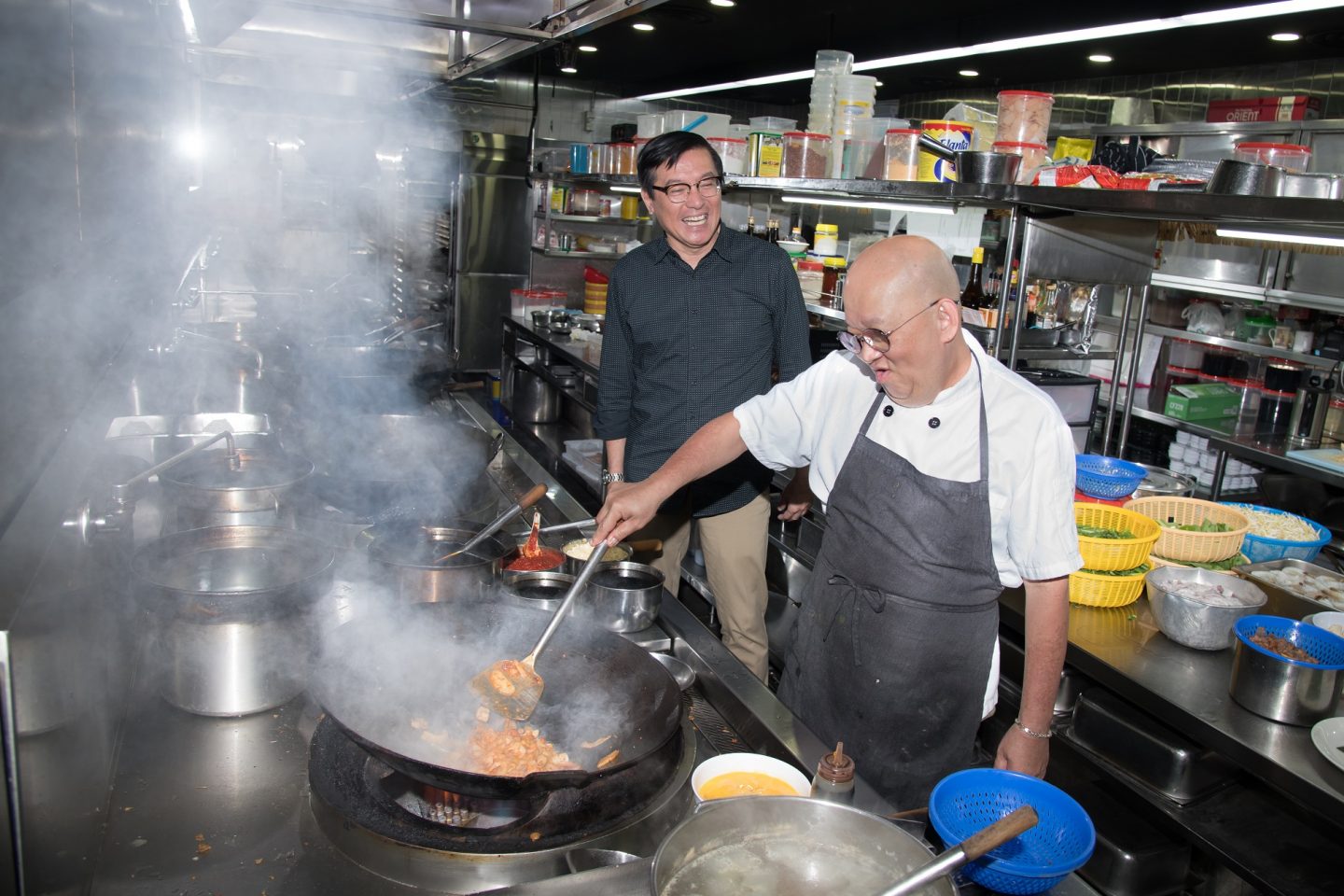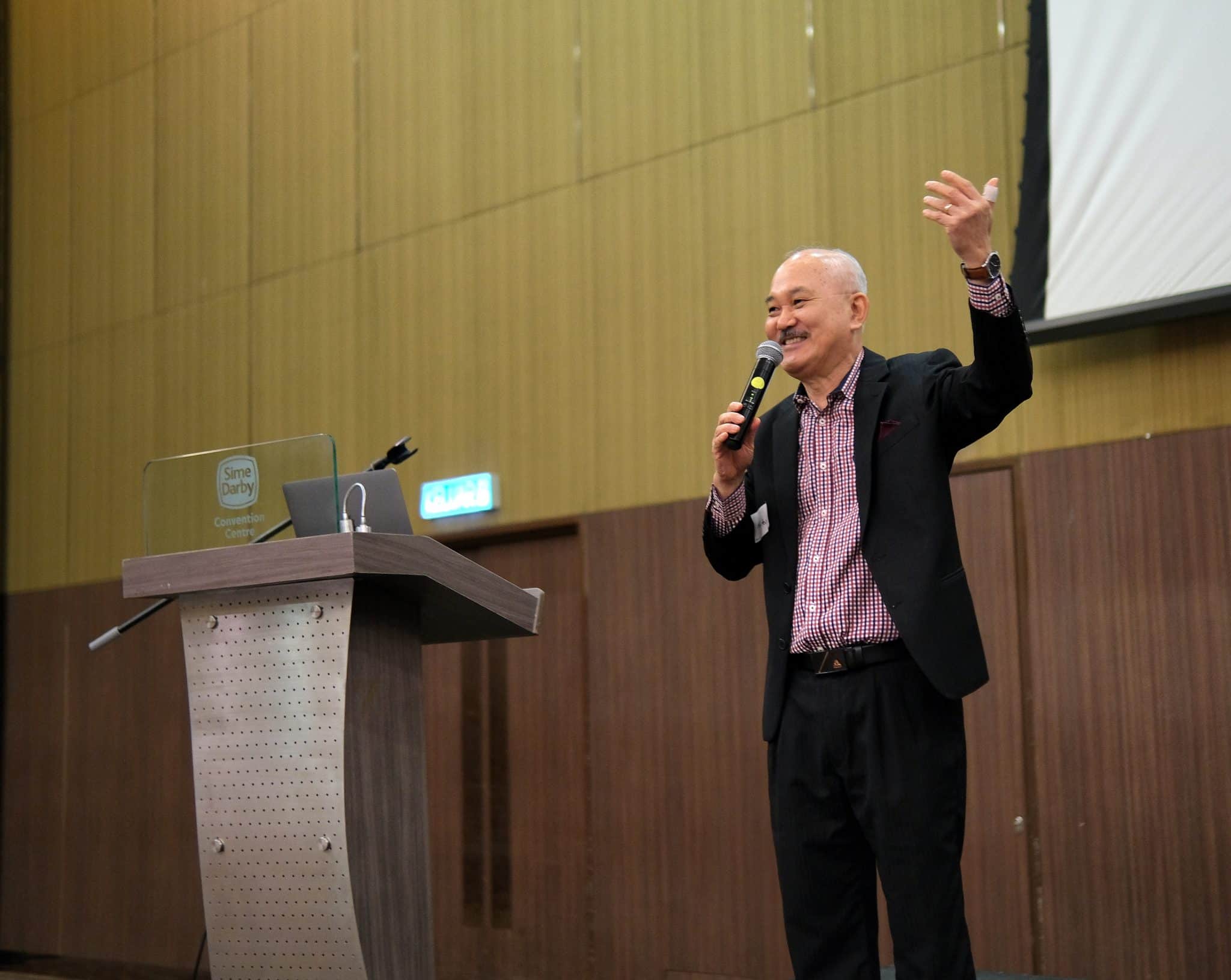
At a company-wide talk, Clarence Foo urged his colleagues to rethink their definition of success. He quoted Cullen Hightower, who said: "A good measure of your worth includes the benefits others have gained from your success."
“I think the Bible shows us very clearly that work is a very central part of God’s plan for mankind,” says Pastor Benny Ho, senior pastor of Faith Community Church in Perth, Australia.
“Our work is a platform for our ministry – our work puts us in touch with people that we otherwise would not meet, and takes us to places we otherwise may not go.
“Our work is really an act of worship unto God.”
But living out our faith at work isn’t always easy. We could all use more encouragement, more equipping on how to be an overcoming, influential Christian at the marketplace.
Here’s how professionals that Salt&Light has spoken to honour God with their work.
1. Be faithful in the little things
Civil servant, Shawn Lim, found his job full of paperwork which everyone does “for the sake of it, and nobody knows why”.
“The way I used to handle it was: I’m not going to do anything that I think wastes my time,” he said.
Oddly enough, it was love that changed the young idealist.
Once he decided to be faithful in the small things, he began to feel a sense of joy at work.
“I realised that if I truly loved my wife, I would do all these small, silly things for her,” said Lim, who has been married for two years. “And then it hit me that if I loved the people at work, then I needed to do the same thing for them.”
Reading Timothy Keller’s Every Good Endeavour, a book about how God is intrinsically linked to our work as part of creation, helped the 32-year-old to recognise that the Gospel can be lived out in a Christian’s everyday life.
He saw how selfish he was. “If I have a bad reputation, it is tagged to the God I worship.”
As a testament to God’s goodness, Lim said that once he decided to be faithful in the small things, he began to feel a sense of joy at work.
“I can’t even describe where the joy comes from because normally I wouldn’t feel joy about having this kind of number crunching, administrative, paper-filling kind of work,” he said with a grin. “I know that it’s God because it’s not something that I can conjure up.”
2. Look for opportunities to show grace

The Taxi Drivers’ Christian Fellowship was set up in 1989 to provide a spiritual support network for the mostly-solo workers. Here, some of the members are rehearsing for a performance at an elder care centre.
Time is money, and for a taxi driver, both are often in short supply. In spite of this, the members of the Taxi Driver Christian Fellowship constantly look for opportunities to show grace to their clients (2 Corinthians 8:7).
The Taxi Drivers’ Christian Fellowship (TDCF) was started in 1989, formed so that Christian drivers could find fellow brothers and sisters (1 Corinthians 12:13) and be equipped to be missionaries on the road (Matthew 5:13-14).
“If you treat driving a taxi as a means to earn money, of course it’s just a job. But we treat it as a form of service to others.”
They have the “opportunity to encounter all sorts of people” and could literally disciple the nation, as Chen Jia Tai, a church elder, puts it.
TDCF member Ken Lim, 60, said the fellowship is a place for drivers to learn from other cabbies how to live out their convictions. Specifically, what happens if a customer accuses the driver of a blunder and refuses to pay for the ride? If they encounter a passenger who runs away before paying, should they file a report? What should they do if another car rear-ends theirs?
The drivers have held back on calling the police, and even picked up strangers who say they have no cash on them but are in urgent need of a ride.
They also take time out during their shifts to visit those in hospital, and pool together a sum of money to help their sick friends cover the taxi rental cost when they are unable to work.
“If you treat driving a taxi as a means to earn money, of course it’s just a job. But we treat it as a form of service to others,” Lim told Salt&Light in Mandarin.
3. Put away bitterness
In his work as a real estate agent, Clarence Foo has faced his fair share of difficult clients. A few days before his final meeting with a particularly unpleasant group, God challenged him to – not only tolerate them – but to actually present them with a parting gift.
“I really struggled because I thought to myself, ’God, they’re really demanding people. Why do I need to give anything? And anyway, I have not done anything wrong!’” he said.
“It is very easy to hold grudges, which is never good for the heart and never good for your person as a whole.”
He argued with God. But in the end, he made the decision to heed God’s word – he picked up a gift for the clients and gave it to them.
You may think that a gift may have repaired the relationship but Foo said that the clients took the gift and left without a word of thanks.
“That night, God said to me, ‘If you can give, you can forgive.’”
It was not the gift that God was looking at, it was his heart.
“It is very easy to hold grudges, which is never good for the heart and never good for your person as a whole,” said Foo, citing Proverbs 17:22.
“I’ve given gifts a few more times since then at God’s promptings. I’m quite glad that it’s not often because, if it were, I would be broke as I’d be losing money!” he said good naturedly.
4. Set a culture of grace

Li Yan (middle) is one of the most decorated coaches in the history of the sport of short track speed skating, but her road to success hasn’t been smooth.
She is known on the rink as the Iron Ice Maiden. Yet, Li Yan, renowned Olympic speed skating coach, believes that “glory is temporary, growth is lifelong”, a conviction that stems from her faith.
This faith in God is reflected in the way she coaches teams in the rink.
“Mutual respect is an expression of love. I urge teammates to encourage one another. When one teammate contributes in some way, other teammates benefit.
“If only the coach has something to say, and everyone else blindly follows, there would be no real, new growth out of it. When each person connects with the others, we are working toward a common goal.
“Mutual respect is an expression of love. I urge teammates to encourage one another.”
“I encourage teammates to love one another, forgive one another, and cherish one another. Even though I cannot raise their salary, I can do my best to bring them what is best.”
There are still times when she finds it difficult to understand God’s plans for her life.
When she spoke to her pastor, he told her: “All this is for the best. God gives you these trials to test your team. Do they truly love one another? Support one another? Is there true cohesion? He grants you these great challenges so that you may become a person of perseverance.”
The team watched as Li Yan arranged the positions of the teammates, so that the entire team might maximise their potential. Under her arrangement, the teammates may not have achieved their personal desires, but it guaranteed the victory of the team as a whole.
5. Let your values speak

“Alvin Goh is our master-chef. He can cook all the different types of Penang food and make the desserts and pastry as well,” said Paul Ooi.
Paul Ooi is the man behind Penang Place, a popular restaurant in Suntec City.
While industry statistics posit that 40% of new F&B joints fail within the first five years of operation, Penang Place has been running since 2003, and makes considerable profits every year.
To Ooi, however, his business is built not just on profits but around kingdom values. (Psalm 37:16-17)
“We treat others the way we like to be treated ourselves. It’s the golden rule (Matthew 7:12). “
To advance the Gospel and its works, he set up a foundation to which half of the restaurant’s profits after tax go.
The money is used to help the poor and needy, in areas where the Gospel is preached (Deuteronomy 15:11).
When his restaurant had to be moved because of a building improvement plan, he and his wife considered retirement.
“But we had a responsibility to the 30 permanent staff. Many were with us from the start and have families to support.
“We felt it was the will of God to carry on.”
With his staff, some of whom have been with him since the beginning, Ooi practises profit-sharing, because “they are the ones who make it possible. We work hard together.
“Besides, God must care for them more than we care for them.”
Ooi and his wife “try to represent the Lord, who is their senior partner.
“We treat others the way we like to be treated ourselves. It’s the golden rule (Matthew 7:12).”
We are an independent, non-profit organisation that relies on the generosity of our readers, such as yourself, to continue serving the kingdom. Every dollar donated goes directly back into our editorial coverage.
Would you consider partnering with us in our kingdom work by supporting us financially, either as a one-off donation, or a recurring pledge?
Support Salt&Light




